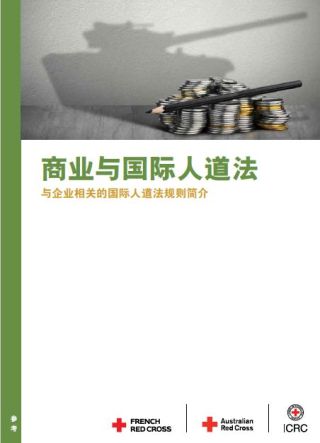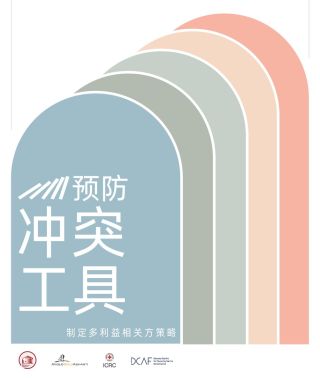DCAF-ICRC Partnership in the News!
Official Launch of the Chinese language version of the Conflict Prevention Tool
Country-level security risks are like the weather. Internal corporate culture challenges are like traffic. Site-level risks are the potholes.
RZCSRI
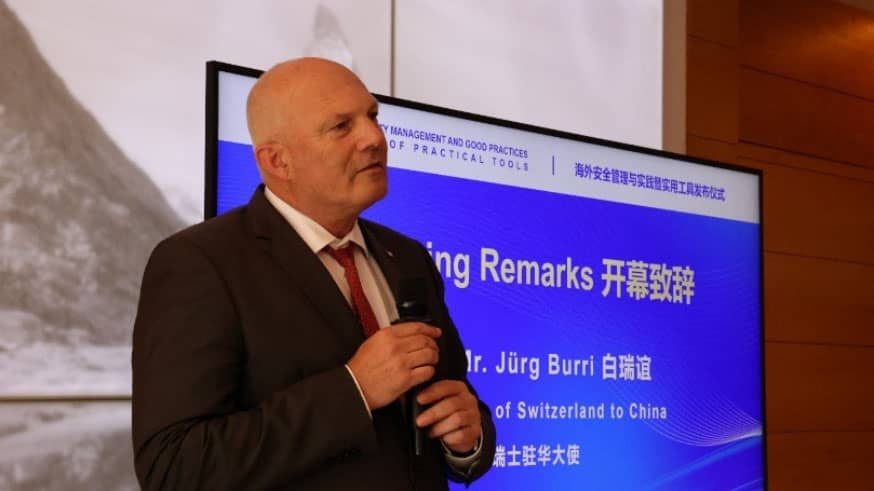
At a high-level event hosted by the Embassy of Switzerland in Beijing, the DCAF-ICRC Partnership and the Beijing Rongzhi Corporate Social Responsibility Institute (RZCSRI) launched the Conflict Prevention Tool (CPT) with over 50 representatives of the private sector, public institutions, academia, and international organizations.
The CPT is integral to the DCAF-ICRC Partnership project on engaging Chinese business actors in responsible business conduct, promoting conflict prevention, and linking Chinese companies to multistakeholder dialogues in complex environments like the Democratic Republic of Congo, Mozambique, and Peru.
Swiss Ambassador Jürg Burri and ICRC Head of Delegation for East Asia Balthasar Staehelin opened the event, welcoming participants and situating the tool and the DCAF-ICRC Partnership as part of wider efforts of Switzerland and ICRC respectively to engage with China in the promotion of security governance, respect for international humanitarian law, peace, and sustainable development.
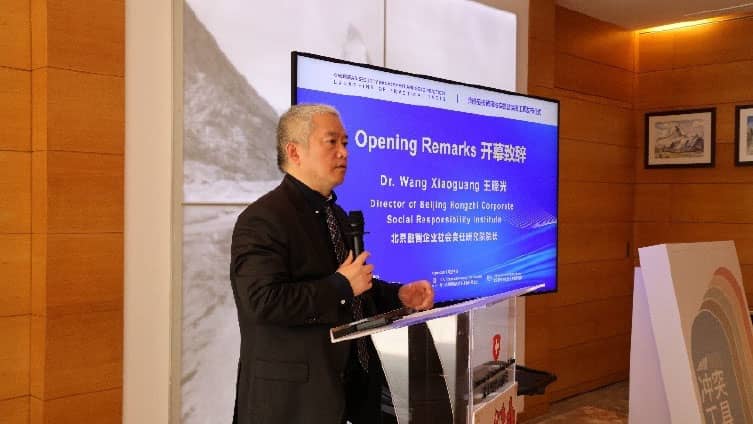
The Director of RZCSRI Dr. Wang Xiaoguang shared reflections on how the CPT will be essential in his organisation’s work advising companies on risk management.
Participants also heard dynamic and engaging interventions from experts on corporate culture and leadership and case studies of security challenges faced by Chinese companies working in high-risk contexts:
- Diao Chunhe, Executive Chairman of the Alliance of Chinese Business in Africa for Social Responsibilities
- Dr. Sun Xiansheng, Chairman of the International Society for Energy Transition Studies and Former Secretary General of the International Energy Forum
- Mr. Luo Daquing, Former Party Secretary of the Myanmar Wanbao Copper Mining Ltd.
- Professor Yang Zhuang, Professor of Management at the National School of Development, Peking University
DCAF’s Head of Business & Security, Dr. Alan Bryden presented the value and utility of the Tool in addressing and preventing risks through multistakeholder engagement. Later, DCAF was interviewed by a news program of China Media Group, a major state-owned media organisation. The ICRC and various CMG branches (also including CCTV, CGTN, etc.) have been engaging together for many years.
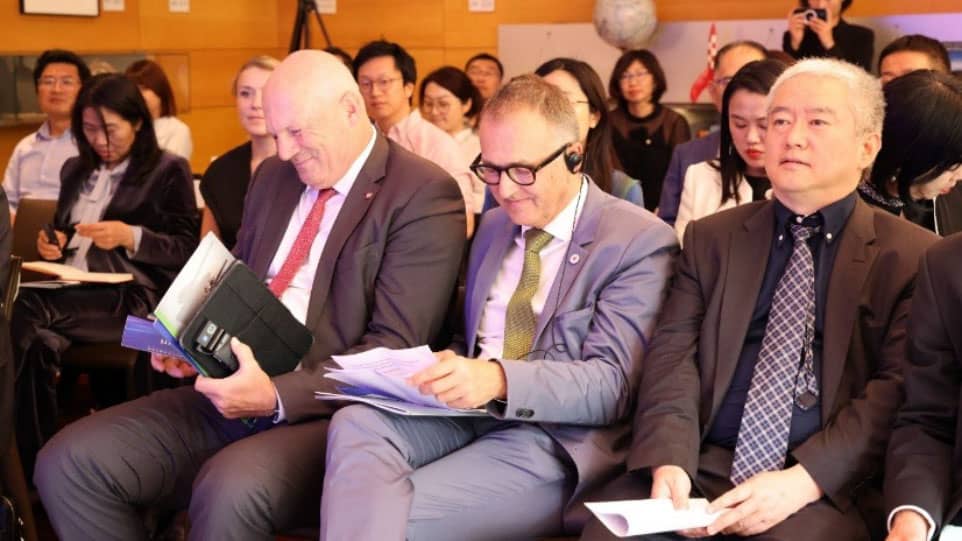
The event discussions showed significant progress by Chinese business actors in acknowledging the importance of security and conflict sensitivity in wider Environmental-Social-Governance (ESG) risk management and corporate social responsibility initiatives. Participants emphasized that “CSR is an imperative for building world-class companies,” that “respect by businesses for national and international laws is imperative,” and that “security management is not only a technical issue but a core responsibility within ESG”.
The event was also the occasion to launch the Chinese translation of the guide on Private Businesses and Armed Conflict: An Introduction to Relevant Rules of International Humanitarian Law, authored by the ICRC, Australian Red Cross, and French Red Cross. Primarily intended for private business staff such as legal counsel and others in compliance or human rights due diligence roles, the publication may also be instructive for humanitarian practitioners, other legal experts, government and regulatory officials, and civil society in their advocacy and engagement roles.
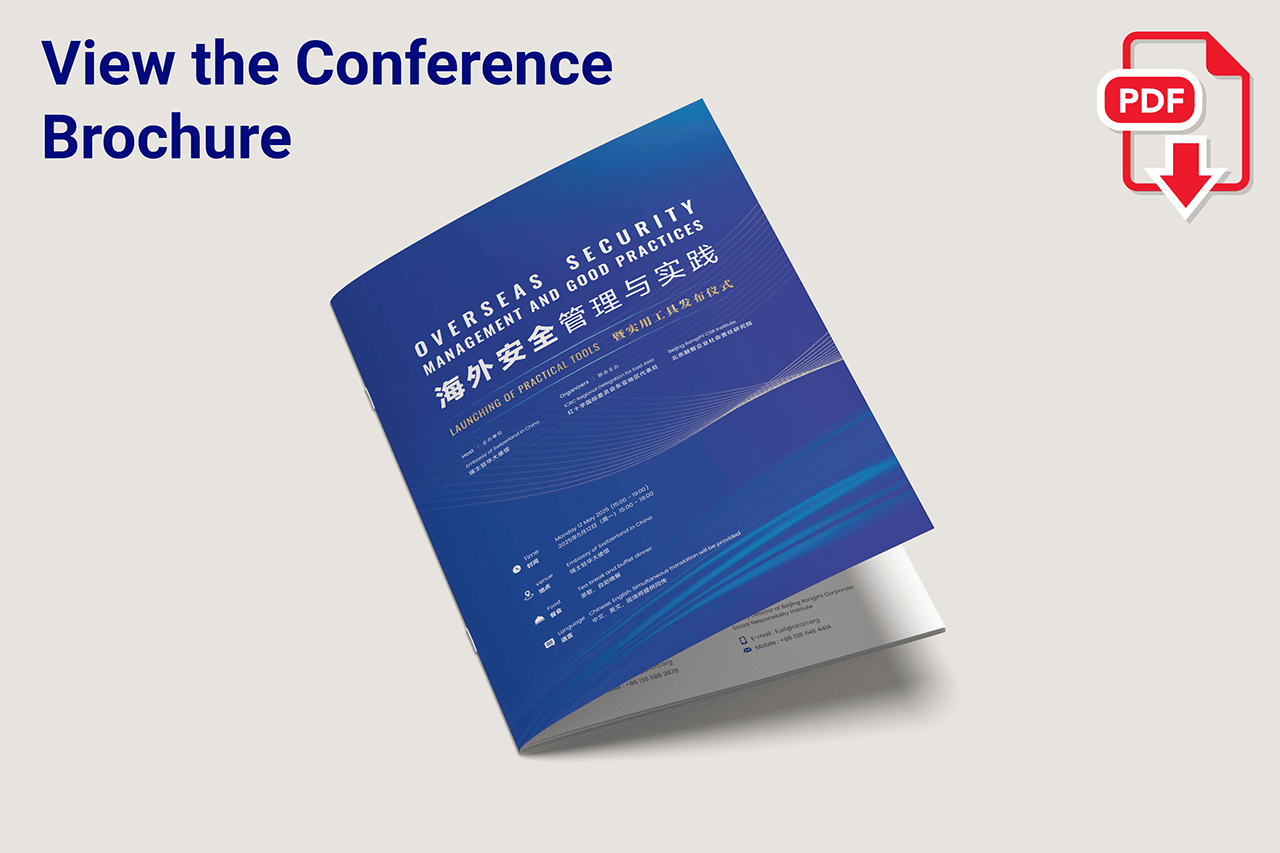
The Conflict Prevention Tool supports businesses working in complex overseas environments to undertake more effective conflict analysis and heightened due diligence. Available in English and Chinese, it was developed by DCAF-ICRC with AngloGold Ashanti and Queen’s University in a collaborative partnership. RZCSRI provided expert translation and contextualization of the translation for the Chinese corporate audience.
As next steps, DCAF-ICRC will explore implementation opportunities with RZCSRI to build capacities of the Chinese business industry on applying the Tool in complex environments.
For more information on the project, read the fact sheet below in English or Chinese.
Supporting Chinese companies in responsible business conduct, managing security risks and ensuring a social license to operate With a significant footprint in the critical minerals sector, the scale of foreign investments and overseas operations by Chinese companies has increased significantly in recent years. In Africa alone, some 10’000 Chinese-owned businesses are now driving a significant percentage of the continent’s infrastructure initiatives and extractive projects. In complex environments, Chinese companies encounter a range of risks and challenges that can undermine the security of their personnel as well as the security and livelihood of local communities. These risks also negatively impact business continuity. Many companies have already recognized the need to align with international standards and are seeking practical support to ensure responsible security management. As part of their partnership DCAF-ICRC are committed to enabling Chinese companies to implement responsible business practices in the security management when operating overseas in conflict-affected and high-risk areas.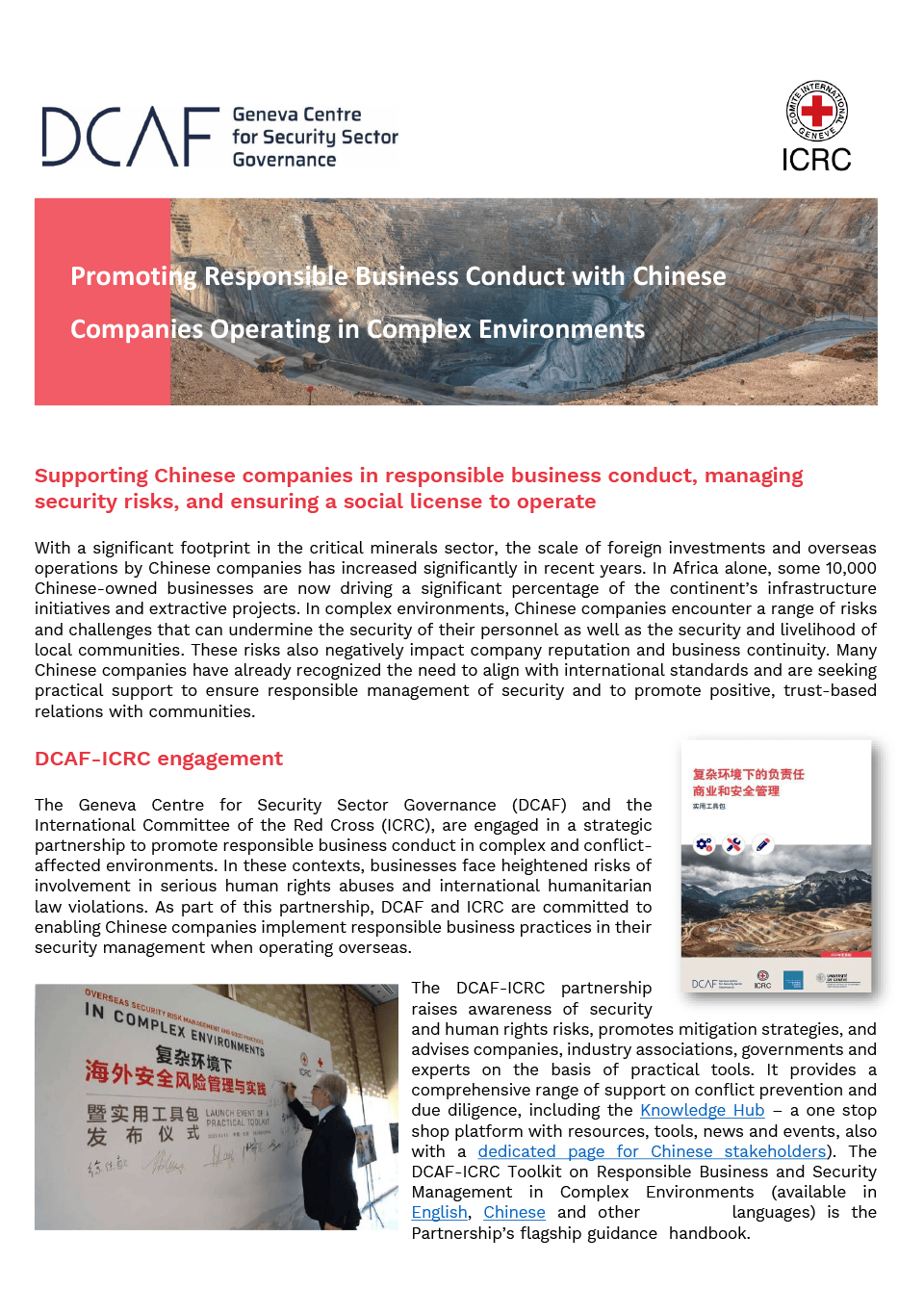
Promoting Responsible Business Conduct with Chinese Companies Operating in Complex Environments
Description
PDF(s)





